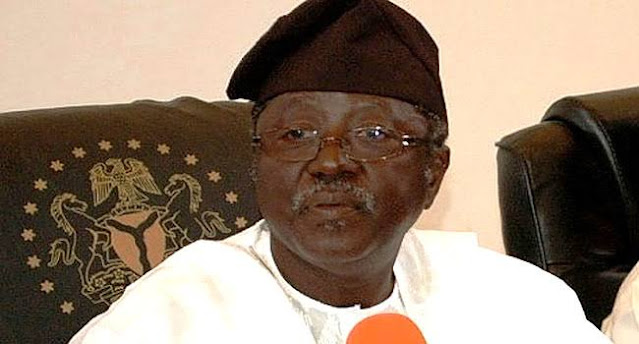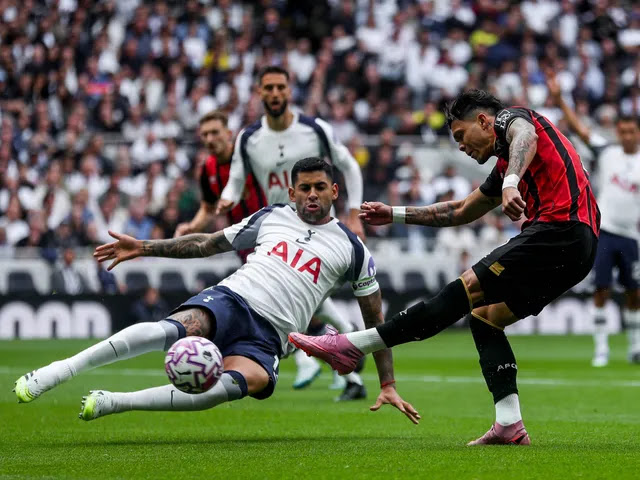Jos, Plateau State, Nigeria – On Saturday, August 30, 2025, former Plateau State Governor and Senator Jonah Jang declared the Peoples Democratic Party (PDP) as one of Nigeria’s most united political parties since its inception in 1998. Speaking at a caucus meeting of the PDP in Plateau North Senatorial District, held in Jos, Senator Jang emphasized the party’s enduring strength and cohesion at the national level, asserting that no faction has ever succeeded in shaking its foundation. His remarks come at a pivotal moment for the PDP in Plateau State, as stakeholders in the senatorial district unanimously endorsed Governor Caleb Mutfwang, Deputy Governor Josephine Piyo, and PDP State Chairman Chris Hassan for a second term, signaling strong party unity and confidence in their leadership ahead of the 2027 elections.
Jang’s remarks highlight the PDP’s resilience in the face of internal and external challenges, including defections and political rivalries, while underscoring the importance of loyalty among the party’s founding members. The endorsement of Mutfwang and his team reflects the PDP’s commitment to consolidating its dominance in Plateau State, a key political battleground in Nigeria’s Middle Belt. This article provides a detailed analysis of Jang’s statements, the caucus meeting, the political context in Plateau State, and the broader implications for the PDP and Nigerian politics.
Senator Jonah Jang on PDP’s Unity and Resilience
Addressing party faithful at the caucus meeting, Senator Jonah Jang, a founding member of the PDP and a prominent figure in Plateau State politics, celebrated the party’s enduring unity since its formation in 1998. “Since 1998, the PDP has remained one of the most united political parties in Nigeria. No faction has been able to shake its foundation,” Jang declared, highlighting the party’s ability to withstand internal crises and maintain its position as a leading political force in the country. He attributed this resilience to the dedication and sacrifices of the party’s true founding fathers, who have remained steadfast in their commitment to the PDP’s ideals.
Jang expressed dismay at the defections of some founding members to rival parties, questioning their loyalty to the party they helped establish. “It makes no sense to me when I hear founding members of PDP defecting to another party. How can a founding father abandon his own house? A true and genuine founding father will not abandon his house, no matter the level of provocation,” he said. His remarks were a pointed critique of high-profile defections, such as those of former PDP members to the All Progressives Congress (APC), which have occasionally threatened the party’s cohesion.
The former governor’s emphasis on loyalty reflects his deep connection to the PDP, which he helped shape during its formative years. Jang, who served as Plateau State Governor from 2007 to 2015 and later as a senator representing Plateau North, played a significant role in establishing the PDP as a dominant force in the state. His tenure as governor was marked by efforts to promote peace, infrastructure development, and social cohesion in a state historically plagued by ethno-religious conflicts. His call for unity resonates with the PDP’s broader strategy to consolidate its base and prepare for the 2027 general elections, both at the state and national levels.
Unanimous Endorsement of Mutfwang, Piyo, and Hassan
The caucus meeting in Plateau North Senatorial District was a significant event, bringing together PDP stakeholders, including party leaders, elected officials, and grassroots members, to strategize and reaffirm their commitment to the party’s agenda. A key outcome of the meeting was the unanimous endorsement of Governor Caleb Mutfwang, Deputy Governor Josephine Piyo, and PDP State Chairman Chris Hassan for a second term. This endorsement underscores the party’s confidence in their leadership and its desire to maintain continuity in governance.
Governor Caleb Mutfwang, who assumed office in 2023, has been praised for his efforts to restore peace, improve infrastructure, and promote inclusive governance in Plateau State. His administration’s focus on agriculture, education, and youth empowerment has resonated with residents, particularly in the northern senatorial district, which includes local government areas such as Jos North, Jos South, Barkin Ladi, Bassa, Riyom, and Jos East. Mutfwang’s leadership has been credited with stabilizing the state after years of security challenges, including farmer-herder clashes and communal violence.
Deputy Governor Josephine Piyo, a respected figure in Plateau politics, has complemented Mutfwang’s efforts by focusing on gender inclusion and community development. Her work in mobilizing women and youth has strengthened the PDP’s grassroots support, making her a key asset in the party’s electoral strategy. Similarly, PDP State Chairman Chris Hassan has been lauded for his organizational skills and ability to unite party members, ensuring that the PDP remains a cohesive force in Plateau State.
The endorsement of these leaders reflects the PDP’s strategic focus on continuity and stability, particularly in a state where the party has maintained a strong presence since 1999. It also signals the party’s intent to project unity and strength ahead of the 2027 elections, countering the growing influence of the APC in the region.
Political Context: The PDP in Plateau State
Plateau State has been a stronghold of the PDP since Nigeria’s return to democratic rule in 1999. The party’s dominance in the state is rooted in its ability to appeal to a diverse population, comprising various ethnic and religious groups, including the Berom, Mwaghavul, Tarok, and Hausa-Fulani. However, the state has also been a battleground for political rivalries, with the APC making significant inroads in recent years, particularly during the 2015 and 2019 elections under former Governor Simon Lalong.
The PDP’s return to power in 2023, with Mutfwang’s victory, marked a resurgence for the party after losing the governorship to the APC in 2015. Mutfwang’s election was a testament to the PDP’s grassroots mobilization and its ability to capitalize on public dissatisfaction with the APC’s governance. However, the party faces ongoing challenges, including managing internal factions and addressing socio-economic issues such as unemployment, insecurity, and infrastructure deficits.
Senator Jang’s remarks at the caucus meeting reflect the PDP’s broader strategy to maintain its dominance in Plateau State while addressing these challenges. By emphasizing the party’s unity and the loyalty of its founding members, Jang sought to rally party members and counter the narrative of internal divisions. His call for loyalty also serves as a warning to potential defectors, particularly in light of recent high-profile defections to the APC in other states, such as Rivers and Delta.
The PDP’s National Landscape
Jang’s assertion that the PDP is one of Nigeria’s most united political parties is significant in the context of the party’s national trajectory. Since its formation in 1998, the PDP has been a dominant force in Nigerian politics, governing the country from 1999 to 2015 and maintaining a strong presence in several states. Despite losing the presidency to the APC in 2015, the PDP has remained a formidable opposition party, with a robust organizational structure and a loyal base of supporters.
The party has faced challenges, including defections, leadership disputes, and electoral losses, but it has also demonstrated resilience. The PDP’s ability to navigate these challenges is attributed to its strong institutional framework, which includes a national executive committee, state chapters, and a network of influential leaders like Jang. The party’s recent successes in states like Plateau, Bauchi, and Osun highlight its continued relevance and its potential to challenge the APC in the 2027 elections.
Jang’s comments also reflect the PDP’s efforts to reposition itself as a united and viable alternative to the APC. The party has been working to reconcile internal factions, strengthen its grassroots structures, and develop a clear policy agenda to address Nigeria’s pressing challenges, including economic stagnation, insecurity, and corruption. The endorsement of Mutfwang, Piyo, and Hassan in Plateau State is part of this broader strategy, signaling the party’s commitment to rewarding effective leadership and maintaining unity.
Socio-Economic Context: Challenges and Opportunities in Plateau State
Plateau State, known as the “Home of Peace and Tourism,” has faced significant socio-economic challenges that have shaped its political landscape. The state has been plagued by ethno-religious conflicts, particularly between farmers and herders, which have resulted in loss of life and property. These conflicts have disrupted agricultural activities, a key driver of the state’s economy, and displaced thousands of residents.
Governor Mutfwang’s administration has prioritized peacebuilding and reconciliation, working to address the root causes of these conflicts. Initiatives such as the establishment of peace committees, community dialogues, and security enhancements have helped to reduce violence and restore stability. The endorsement of Mutfwang for a second term reflects public confidence in his ability to sustain these efforts and promote inclusive development.
The state also faces economic challenges, including high unemployment rates, particularly among youth, and inadequate infrastructure. The PDP’s focus on agriculture, education, and youth empowerment under Mutfwang’s leadership aims to address these issues, creating opportunities for economic growth and job creation. The endorsement of Piyo and Hassan further underscores the party’s commitment to inclusive governance, with a focus on gender equity and grassroots mobilization.
Implications for the 2027 Elections
The unanimous endorsement of Mutfwang, Piyo, and Hassan by Plateau North stakeholders has significant implications for the PDP’s strategy in the 2027 elections. The endorsement strengthens Mutfwang’s position as the party’s flagbearer, positioning him as a frontrunner for re-election. It also sends a strong message to the APC and other opposition parties that the PDP remains united and confident in its leadership.
The endorsement also highlights the importance of Plateau North as a political stronghold for the PDP. The senatorial district, which includes Jos, the state capital, is a key electoral battleground, with a large and diverse voter base. The PDP’s ability to mobilize support in this region will be critical to its success in 2027, both at the state and national levels.
Jang’s call for loyalty and unity is a strategic move to consolidate the PDP’s base and prevent defections to the APC, which has been actively courting PDP members in Plateau and other states. The APC’s growing influence in the Middle Belt, driven by figures like former Governor Simon Lalong, poses a challenge to the PDP’s dominance. However, the PDP’s strong grassroots structures and the popularity of leaders like Mutfwang and Jang give it a competitive edge.
Community Reactions and Expectations
The caucus meeting and the endorsement of Mutfwang, Piyo, and Hassan have been met with enthusiasm by PDP supporters in Plateau North. Community leaders, youth groups, and women’s organizations have expressed support for the party’s leadership, citing Mutfwang’s achievements in peacebuilding and development. Residents of Jos and other LGAs in the senatorial district have called for continued focus on security, infrastructure, and economic empowerment, particularly for youth and women.
However, some analysts have cautioned that the PDP must address internal factions and ensure inclusivity to maintain its unity. The party’s success in 2027 will depend on its ability to manage these dynamics and present a cohesive front. Jang’s remarks about loyalty and the sacrifices of founding members serve as a reminder of the need for discipline and commitment within the party.
The Broader Nigerian Political Landscape
The PDP’s unity in Plateau State reflects broader trends in Nigerian politics, where parties are grappling with internal divisions and the challenge of maintaining relevance in a competitive landscape. The APC, which has governed Nigeria since 2015, has faced criticism for its handling of economic and security challenges, creating an opportunity for the PDP to position itself as a viable alternative. The PDP’s success in states like Plateau, where it has maintained a strong presence, will be critical to its national strategy.
The party’s emphasis on unity, as articulated by Jang, also highlights the importance of leadership and institutional strength in navigating Nigeria’s complex political environment. The PDP’s ability to retain the loyalty of its founding members and mobilize grassroots support will be key to its success in the 2027 elections.
Looking Ahead: A United PDP for a Prosperous Plateau
Senator Jonah Jang’s declaration of the PDP as one of Nigeria’s most united political parties sets a positive tone for the party’s future in Plateau State and beyond. The unanimous endorsement of Governor Caleb Mutfwang, Deputy Governor Josephine Piyo, and PDP State Chairman Chris Hassan reflects the party’s confidence in its leadership and its commitment to continuity. As Plateau State prepares for the 2027 elections, the PDP’s unity and grassroots mobilization will be critical to sustaining its dominance and addressing the state’s challenges.
The caucus meeting in Plateau North serves as a reminder of the PDP’s resilience and its ability to navigate internal and external challenges. Jang’s call for loyalty among founding members underscores the importance of discipline and commitment in maintaining the party’s strength. For residents of Plateau State, the endorsement of Mutfwang and his team offers hope for continued progress in peacebuilding, development, and inclusive governance.
As the PDP looks ahead, its ability to sustain unity, address socio-economic challenges, and mobilize support will determine its success in 2027. Senator Jonah Jang’s leadership and vision provide a strong foundation for these efforts, positioning the PDP as a formidable force in Plateau State and Nigerian politics. With a united front and a clear agenda, the PDP is poised to build on its legacy and deliver a prosperous future for the people of Plateau State.






